Dear all,
Dr. Harremann suggested a question about his lessons:
"Does it make sense to read Kafka for a better understanding of law?"
You can try to answer this question on the blog. But remember: leave your name or at least your "matricola". Let's try!
Law and the Humanities at Roma Tre
The blog of the "Law and the Humanities" course of lessons at the Roma Tre University (Law Faculty)
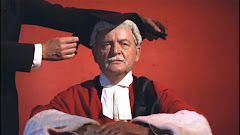
Alfred Hitchock's "Dial M for Murder" (1954)
Sunday, 6 April 2008
Subscribe to:
Post Comments (Atom)

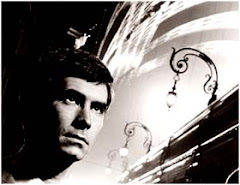


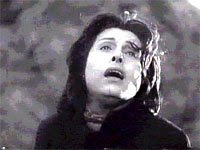
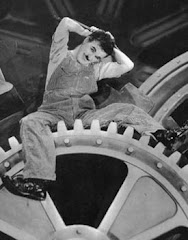
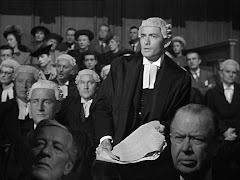

7 comments:
Does it make sense to read Kafka for a better understanding of law? Well, after three lectures about one of the greatest writers of the last century one might say "yes, it does!". Rhetorical answer, though. It depends on what we mean for "law". If we assume that law means for us – as much as for a Gregor Samsa or a Joesph K. – a supreme Rule, then yes Kafka's novels are useful. Nevertheless this usefulness only manages to explain the philosophical and sociological aspects of this rule and its context.
In this sense, it seems to me that the concept of law in Kafka's readings is dissolved in the most general concept of authority, political system and society itself. Stepping aside from this too general and blurry statement, we can intend "law" in its juridical and restricted meaning: a complex system of juridical rules and principles which are supposed to describe the human relations in the most objective way so that justice can be applied in the courts and followed by the society. A very "dry" definition, but yet technical. Probably, Kafka doesn't represent the key to understand this definition of the law.
Yet, it seems to me, he didn't want this to be his purpose. The intent is more subtle: pretending to tell a legal-story (The Trial, The Doorkeeper Parable) Kafka criticises the distance between the rules (which include the power, the authority) and the meanings (we could say interpretations) that jurists, on one side, and normal people, on the other side, give to those rules. Despite their weakness, Kafka's characters fight to defend themselves but they can't conquer a proper justice since they are not nobles or technicians of the law. That's why in Kafka we can also see a critic to the failure of a system of juridical concepts that are supposed to describe the reality but, at the end, they just live of their own artificial life, so that the fictitious world of the law always wins the real one.
The doorkeeper of the Law (I think it's interesting, Kafka doesn't refer to the Justice but always to the Law) is Kafka himself: he's making fun of the stupidity of the juridical culture, above all of the belief that the legitimacy of a rule (power) is stronger if we build up a science upon it. Rhetoric, obtuseness and rigidity are the common qualities people refer to "those-who-know-the-laws", which is perfectly evident in Kafka. On the other side, those who are not technicians of the law often refuse to ask themselves the reason of a rule or simply to get the trick beneath the mechanism.
The man waiting outside the gate doesn't think that the rule "you can't get in" is just a fictitious one (it could be) and that he has the "break" it to defend himself. Kafka seems to tell us that a system of rules doesn't fit perfectly to our need of justice and wellbeing. It is never absolute. It's just relative (sometimes it's even run out of logical sense) and functional to our lives. That is not to say that every man has to have his own rule, but only that rules are made by and for men and therefore can be interpreted and changed. To doubt about law and criticise it: this is the real aim. If this is the right interpratation of Kafka's intent, one might ask why all his charachters fail at the end. Well, maybe because let them always win would have been less realistic than putting shame on their (his) lives. The bitterness we breath in reading Kafka is the gift he left in order to stuck the loss of pity and mercy as well as of usfulness and legitimacy of law in readers heads. Nothing else can be more affective. Just for comparison, in the Merchant of Venice we capture immediately the joy of an happy end, whereas we get the realism of the Jew defeat only for second: but it's the last message to be the realistic one (I think).
So, at the end this question deserves two answers. A strong "yes", as Serena said, because Kafka prevents us from using law as a mean to manipolate the reality. A less strong "no", when we think that is the irony to aim Kafka criticisms. I agree partially with Posner when he underlines how Robin West looks too much literally to these stories (that is to say, narrowly) so that, in a certain way, she skips the second strand of the Law and Literature movement and reads Kafka as he was a real jurist or a legal technician telling his own experiences. If Kafka has to be useful for a better understanding of the law (as general, political and sociological system of rules) we have to put him in the second strand. And the only way to do so is not to take his stories too seriously (Kafka himself suggests it) but taking Kafka's message as a warning for us to not turn trials and procedures into fairy tails.
Barbara D'Amico
Yes, in my opinion it makes sense to read Kafka but not in order to understand law, but to "not understand it".
I give more explanation of my though:Kafka doesn't trust in law.
From his works emerges a vision of law as an arbitrarious act, something imposed by others, somethings that his characters can't understand at all.
The knowledge of the law is only a privilege for few people.
Kafka's charecters try to fight against law but at the end they become passive because when you don't understand something you are a victim of the ones who have the power of the knowledge.
At the end I think that reading Kafka is usefull to understand the negative aspects of law and in order to create a system of rules that should be absolutely avoided
Silvia Paoluzzi
There is a deep connection between kafka and law, between his works and the right, but i'm not really persuaded that reading "der prozess" or the other texts could be useful to understand what is law nowadays.kafka's world is really far from the reality and it is constructed on allegories and metaphors.kafka's world seems to be on a superior plan than the real world and the tribunals,but it doesn't prevent to understand some aspects of society.
silvia cucchiella
This question is very interesting, there's not an only answer.
It depends: if you hope that Kafka's works will explain you law, or better how to understand law,
You probably will be bitterly disappointed.
Yes, because what you can learn from Kafka is that law is something you can never understand.
Kafka's characters live situations they never expected. They can't undestand their condition, and they don't react.
They don't try to solve their problem: they passively accept what happens.
Just think to Gregor Samsa or Joseph K.they wake up and find themselves in absurd situations.
They are victims of a superior force they can't understand.
What is this force? Maybe the society, the authority.
Society and authority should be legitimated by law. Law should be right and known from everybody.
This never happens in Kafka's works.
When we read "The doorkeeper" we find a countryman who expected to have access to law. But he would be never admitted to Law world.
Maybe because he's not a lawyer and he doesn't have the knowledge to understand it, or maybe law is something no one could understand.
Kafka studied law. But he always underline (olso in "the problem of our laws") that "laws are not generally known".
He can't believe in law. When I read Kafka, I can't undestand better our Laws. I can only undestand I will never understand them!
Maybe it's true. More I learn about law, more I think they are too many and I could never have a whole comprehension about them.
This will never demoralize me, but it makes my criticism to grow. Actually, this pessimistic view of law, should drive lawyers to make law more accessible and comprehensible to everyone.
Rosa Pastena
I'm one of those who think it's been useful to read Kafka to understand law. I think he's a very complex character of the 19th century, son of a society unable to teach him the trust in law, but even through his strange experience we can get useful informations about the "law world". He always shows to the readers that law can't save men form their sorrows or their problems, and this is what happens to his characters in the books he wrote: Joseph K. is the poor victim of life, of law, of destiny. He couln't manage anything in his life. Everything seems to happen outside of him. I didn't know this novel before law and literature lessons, but, as I read it, I felt it as a kind of dream -or a nightmare I dare say.
So many elements in the story remind me such a thing: people you wait for so long and never come, arriving later but having a different phisical aspect from the expected one (the "Italian tourist-priest scene"), or better the court room, first overcrowded, then desert. Again, the door-keeper parabel, where we have in front of our eyes the picture of an empty grey space with a black door, a guard standing there and a sit for a hesitant countryman, with no strenght enough to face his destiny. Could all of those events look like a nightmare scene?
Going on with the story, I felt the same nightmarish anxiety knowing how J.K. was almost kidnapped by the two black-dressed misterious men who killed him. And I felt so surprised reading that the court room was so hard to find for Joseph K. and that he went around and back and forward to reach it. But the most nightmarish scene is the one where he finally found it in an unknown girl's room!
I think this all is so outside not only from reality, but from fantasy, too. It can be just dreaming. It could be that Kafka had been inspired by a nightmare he had had before to write "The Trial". Other authors did, too: Lewis Carrol and his "Alice in wonderland" could be an example. Maybe Kafka's life was so deeply influenced by law, by his job, by the hard days of his time that he probably felt trapped into a mechanism whose key wasn't ready for him. Maybe because he didn't really want it.
His nights and days were so full of law that this could be no more than a joke of dreaming, as it happens to everyone of us.
Anyway, inspite of the the real nature of this book-that we'll never know-, in "the Trial" Kafka shows us how law can become a trap if you don't learn to use it. So I think that even his odd evidence can help us to find our (right) way to approach law, to learn to work with it, never to fear it.
In my opinion, reading Kafka does not allow to achieve a better understanding of law. Even though most of his works seem to introduce several issues connected with law, I think that even these points should be analyzed under a more psychologically-oriented prospective, as long as Kafka's main goal is not to develop a rational and systemtic critic of the flaws of law, but to craft a fictional world where to emphasize the relation between his charachters and the surrounding society. This is the main argument against the legal relevance of Kafka's works; the world depicted in them is too irrealistic, too metaphorical, too focused on the inner psycholgy of its charachters to represent a consistent critic of law. In the end, I think that considering Kafka's a useful reading for a better understanding of law, would imply a superficial and reductive view of his works, since even the legal issues developed could be seen as a part of a greater project aimed to depict the author's own idea of interaction between people, family, society.
Guglielmo Agosta
Everyday life can surely be esemplifying of something abstract such as law itself. But I think there’s a consistent gap between being a concrete example of something and making it better understand. Each episode can be read as paradigmatic of some principle such as law principles, but I think it’s just one of the possible ways to interpret a narrative reading. Someone could object that in fact Franz Kafka had studied law for several years and that he had been writing tales as a means to give his idea of law. Being coherent with this point of view, we will end to assume that each “doctor writer” writes about medicine only, as well as an architect should write stories about architecture. Defenitely paradoxical and unrealistic. So, can narrative be considered as itself only if written by a not graduated person?:-) I do agree with Richard posner. Why should we make so many questions about the way to read Kafka and his connection with law and economics, while we can easily enjoy his narrative as we do with any other book?
Alessandro Garzilli
Post a Comment